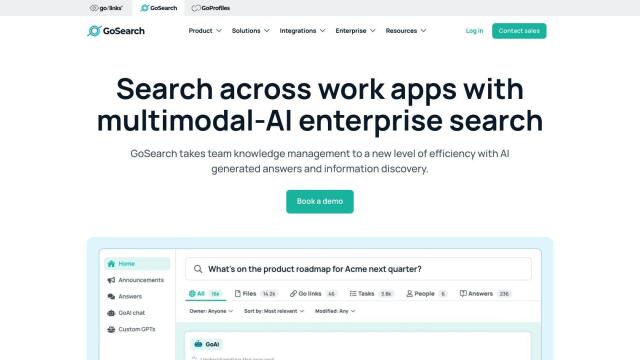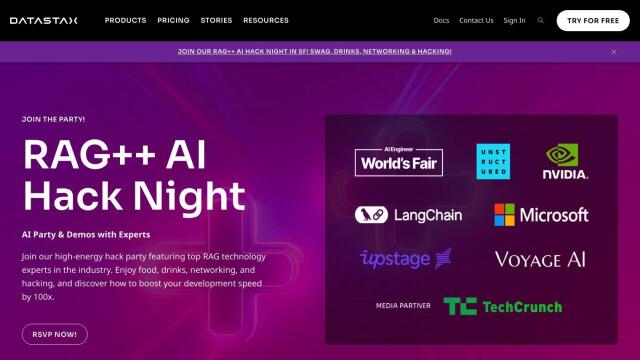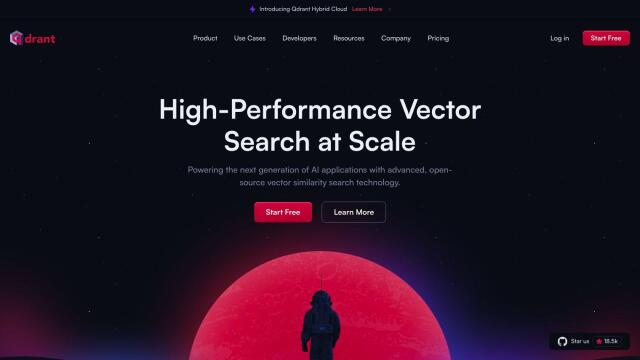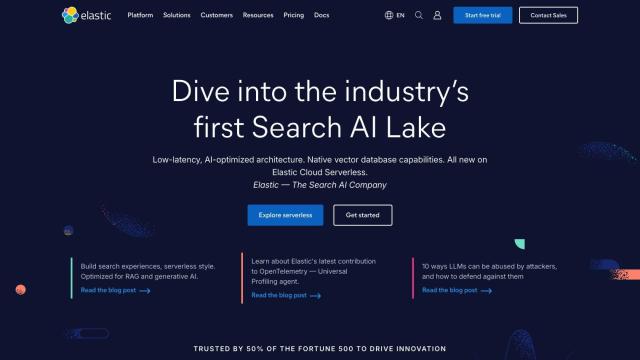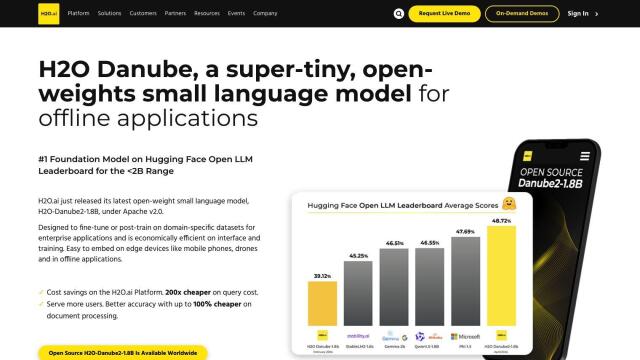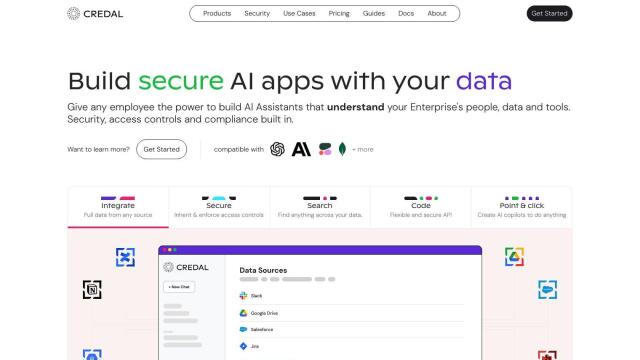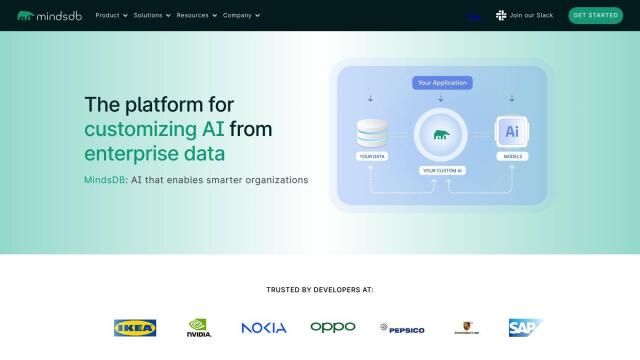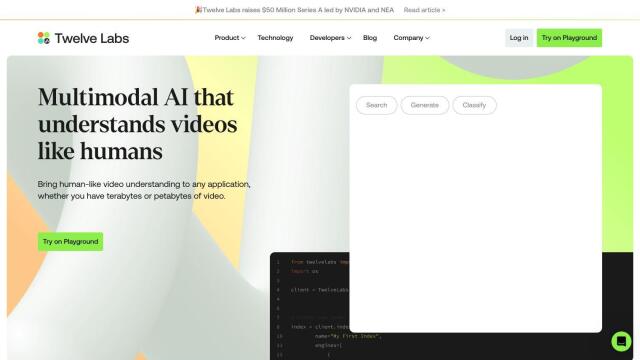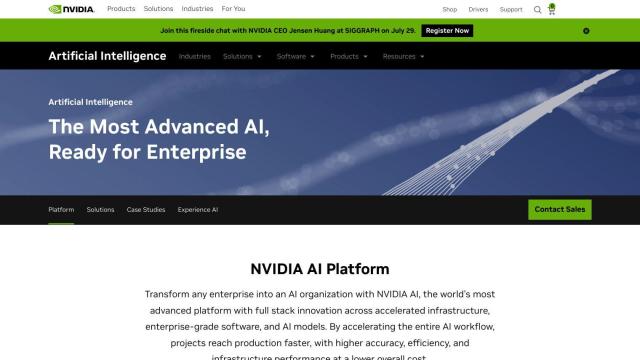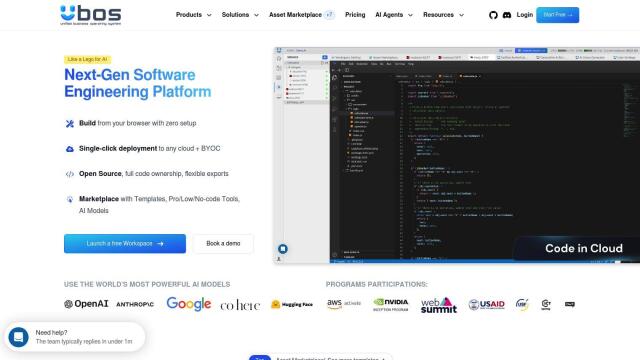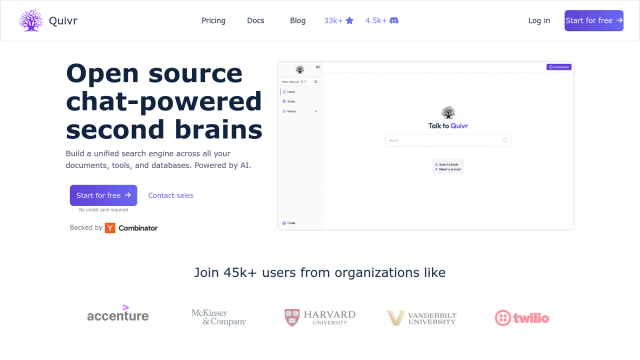Question: Is there a cloud-deployable AI application database that supports multi-modal search and integrations with other tools?


Jina
If you need a cloud-hosted AI application database that can handle multimodal search and can be integrated with other tools, Jina is worth a look. Jina is an AI information retrieval system that's particularly good at multimodal data, with features like embeddings, rerankers and prompt optimizers. It supports more than 100 languages and has APIs for code search and tabular data retrieval. Jina also offers auto fine-tuning for embeddings and can run on-premises on AWS Sagemaker, Microsoft Azure and Google Cloud Services.
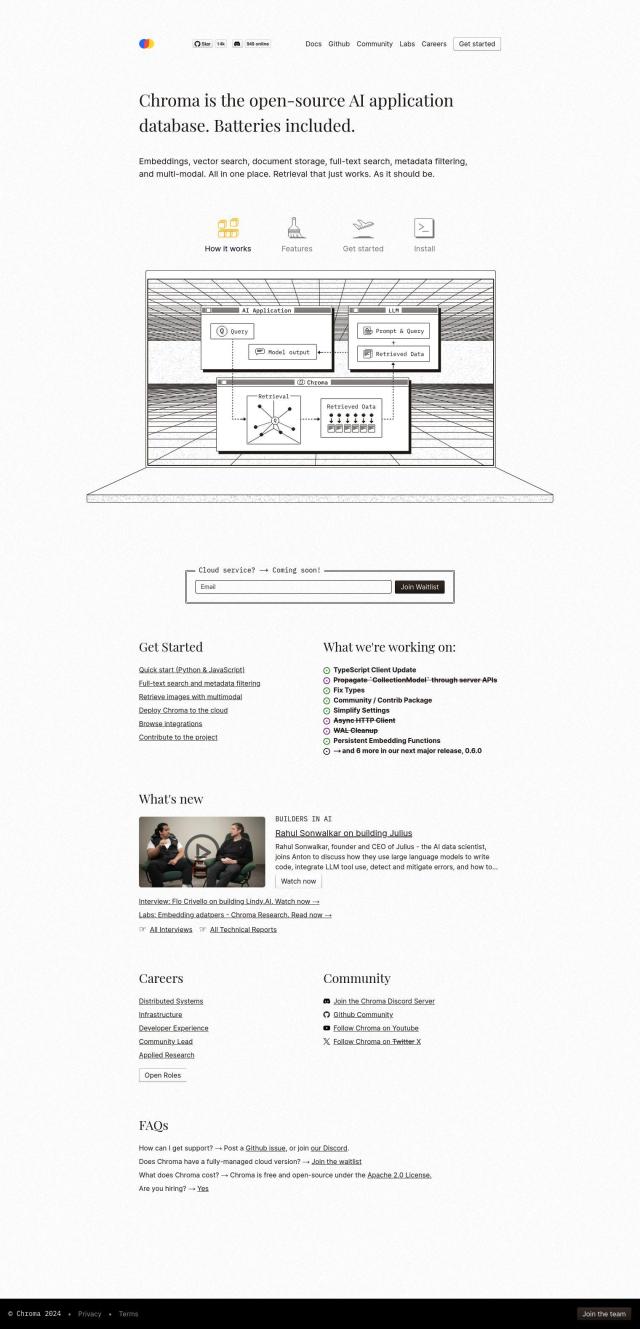
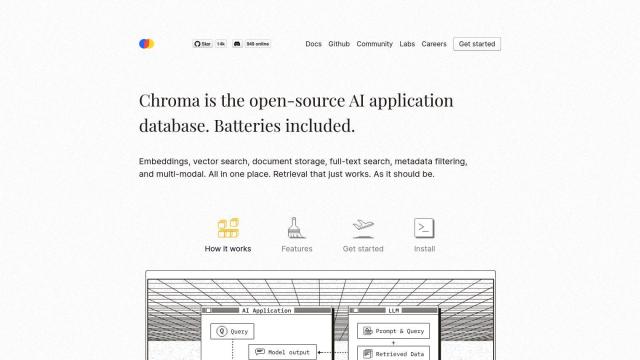
Chroma
Another good option is Chroma, an open-source AI application database that offers a single interface to lots of AI tasks, including multimodal support. Chroma offers full-text search, metadata filtering and image search, so it's good for developers and companies building their own AI apps. Chroma runs in the cloud and can be installed with either Python or JavaScript. Chroma is available under the Apache 2.0 License and is open-source and free. It's a community-driven project with active development.

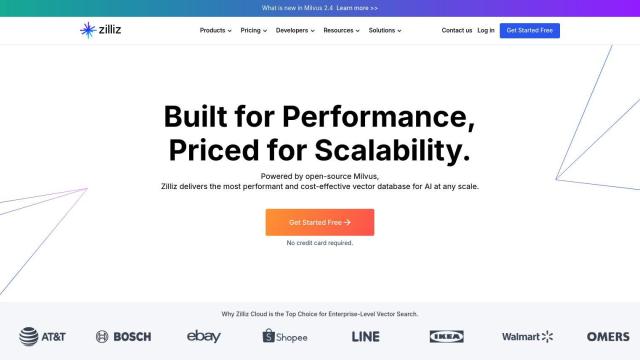
Zilliz
For a more scalable option, Zilliz offers a managed vector database service that's designed to handle massive amounts of vector data and to perform high-speed vector search. It can handle a wide range of use cases, including multimodal similarity search, and integrates with major cloud providers like AWS, Azure and GCP. Zilliz offers high-performance, high-availability and strong security, so it's good for customers who need to run their vector search applications at large scale without worrying about complex infrastructure.

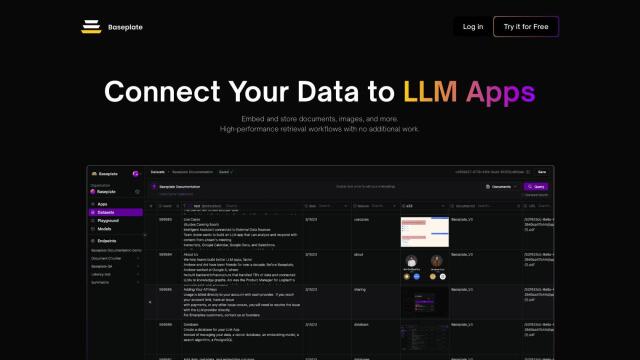
Baseplate
Last, Baseplate is a data management system designed to support Large Language Model applications. It combines different data types into a single hybrid database, with optimized embedding, storage and version control. Baseplate makes it easy to manage LLM app data, supporting multimodal LLM responses and offering APIs for easy integration with your own AI applications.



